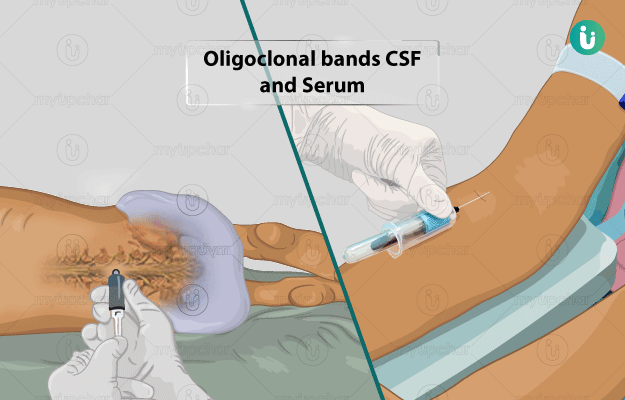What is Oligoclonal Bands Cerebrospinal Fluid (CSF) and Serum test?
The oligoclonal bands CSF test, also known as CSF immunofixation, detects the presence of immunoglobulins (a type of proteins) in the cerebrospinal fluid. The presence of these bands implies inflammation in the central nervous system (CNS) which may be caused by an infection or a disease. CNS comprises the spinal cord and the brain. CSF is a clear, colourless fluid found in your CNS. It protects the CNS against injury and sudden impact.
The word oligoclonal band comes from the fact that the immunoglobulins appear as separate bands when the CSF is put in a gel plate under the effect of an electric current.
Along with the CSF test, the serum (the liquid component of blood without clotting proteins) is also tested for oligoclonal bands.
Bands present only in the CSF indicate local CNS disorders, especially multiple sclerosis, and sometimes other conditions such as CNS infection, inflammation or neoplasia (tumours or cancers). Bands found in both serum and CSF indicate a generalised infection, sarcoidosis (an inflammatory disease affecting many organs), neoplasia or an autoimmune disorder (a condition where the immune system damages normal body tissue).
































